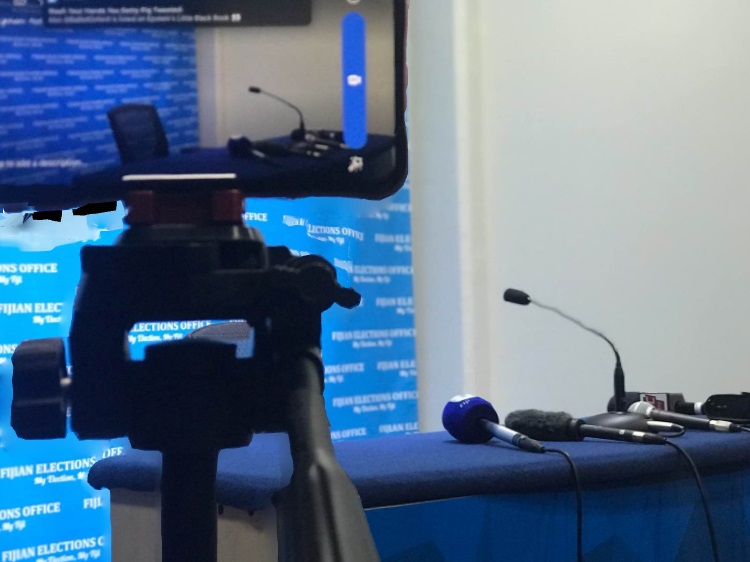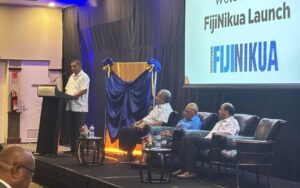Fiji’s Supervisor of Elections (SoE) will be able to access any information including privileged info deemed necessary in the execution of his duties provided under the Electoral Act 2014, in one of the proposed amendments to the legislation tabled in parliament this week.
Expected to be debated tomorrow, the proposed amendment to section 6 of the Act, by way of clause 3, is one of six changes put forward via Bill 49 of 2022.
Section 6 of the Act outlines the duties and powers of the SoE. The proposed change to section 6 by way of the insertion of clause 3 further empowers the SoE “to direct a person, by notice in writing, to furnish such information or documents” if he has reason to believe that a person has information or documents relevant to or required for the performance of his functions under the Act.
The Bill further requires persons directed by the SoE to disclose information or document “notwithstanding the provisions of any other written law on confidentiality, privilege or secrecy”.
Failure to comply or provide false information attracts hefty penalties.
In the case of an individual, breaching or ignoring SoE orders attracts a fine of up to $50,000 and/or a prison term of up to five years. For a company, association, or body of persons, whether corporate or unincorporated, government department, nongovernmental organisation, statutory authority, or any other entity, they are liable to a fine not exceeding $500,000 and “for the director, chief executive officer, minister, manager or officer in charge at the time of offending, to a fine not exceeding $50,000 or a term of imprisonment not exceeding 5 years or both.”
The proposed amendment’s explanatory notes state that in its current form, the 2014 Act does not allow the SoE to make inquiries to obtain information necessary to arrive at decisions, and thus the changes were required.
It states: “Such powers are also extremely important to allow the SoE to conduct inquiries into allegations of breaches of campaign provisions. Various sections of the Act such as sections 116(4)(c), 118, 141, 144, and 144A require the SoE to make certain enquiries in order to be satisfied as to whether or not a contravention under the Act has occurred. Therefore, for this exercise, it is necessary that the SoE has the power to obtain relevant information or documentation.”
SoE Mohammed Saneem told media reps at a presser in Suva this week that the changes are necessary to enable him to carry out his duties.
For instance, one such duty he says is the removal of a statement, whether by a person or an organisation, determined to be false.
Before deciding that a statement should be removed, the SoE will first need to determine whether the information is not correct.
“I will have to ask the person concerned to give me that information so that I know that the information is not correct. Sometimes that information itself is privileged, and therefore it is necessary for the SOE to be able to know before they can say that yes, it is in fact false. So, to do that enquiry, the SoE needs to have reasonable power which is now being part of the proposed amendments.
“The other one, is supposed there is a dispute between two parties, someone has taken over their FB account. A candidate used to run it and they have now switched parties, so they have brought the entire FB account and renamed it. Now there is a dispute. The electoral commission directs me to investigate it because they have the powers to deal with disputes between parties. If I write to a person and say, I have no powers, but can you tell me whether you really own this FB page, what do you expect the answer to be? Instead with these things, the person is now required by law to respond and provide an answer. That will now allow the SoE to carry out proper inquiries before deciding. The SoE is already required by law to refer any breaches of the law to FICAC. To ascertain that breach, sometimes I have to do some inquiries to satisfy myself that yes, this breach has occurred.
“Sometimes supposed a bank is involved, so it will be difficult for me to ask a bank to release information to me because of bribery or allegations, so that is where powers need to be there to allow the SoE to conduct some inquiries.”
Investigative powers, Mr Saneem says remain with FICAC.
Opposition parties are expected to strongly oppose Bill 49 with some raising alarm about the unprecedented level of powers given to the SoE.









